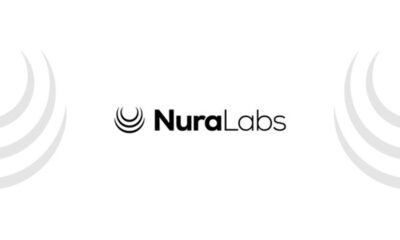Technology
The Evolution of Background Checks in a Digital Age

The Dawn of Digital Investigations
The advent of digital technology has revolutionized many aspects of our lives, including the way we conduct background checks. Gone are the days when these checks were synonymous with tedious paperwork and long waiting times. Today, they represent a fusion of technology and data analytics, offering insights far beyond basic identity verification. This shift has not only made background checks more accessible but also more comprehensive, opening new avenues for both individuals and organizations.
Historically, background checks were viewed as tools for corporate and legal entities. However, the digital era has democratized this process, making it a routine part of many individuals’ decision-making – be it for verifying the credentials of a new neighbor or ensuring the authenticity of an online date. This change in perception reflects a broader trend towards transparency and due diligence in personal interactions.
As we delve into the digital era, the scope of data available for background checks has expanded exponentially. From criminal records to social media footprints, the amount of information accessible to the public has grown. This expansion is not without its challenges, raising questions about privacy and the ethical use of personal data. However, it also presents opportunities for more informed and safer personal and professional interactions.
The Influence of AI and Machine Learning
Artificial Intelligence (AI) and machine learning have been game-changers in the best background check sites industry. These technologies have enhanced the accuracy of data analysis, reducing human error and bias. They have also significantly sped up the process, enabling real-time data processing and quick turnaround times.
Beyond just gathering data, AI has introduced the concept of predictive analytics in background checks. By analyzing patterns and historical data, AI algorithms can predict potential risks and provide a more nuanced view of an individual’s profile. This advanced analysis is particularly beneficial in sectors where risk assessment is crucial.
With various laws governing the use of personal data, ensuring compliance is a critical aspect of conducting background checks. AI helps automate this process, keeping track of changing regulations and ensuring that checks are conducted within legal parameters. This automation not only minimizes the risk of legal infractions but also reduces the chances of errors that can arise from manual compliance checks.
The Role of Social Media and Digital Footprints
Social media has opened a new dimension in background checks, providing insights into an individual’s behavior, preferences, and social networks. This digital footprint offers a more holistic view of a person, going beyond conventional records to include their online activities and interactions.
However, interpreting social media data poses challenges. Determining the relevance and context of online behavior is complex, and there’s a risk of misinterpretation. The dynamic nature of online content also means that data can rapidly change, making it difficult to draw accurate conclusions.
As social media becomes more ingrained in background checks, balancing privacy and transparency becomes paramount. While these checks can provide valuable insights, they also raise privacy concerns. Establishing ethical guidelines and ensuring consent are essential in navigating this new terrain.
The Future Landscape of Background Checks
The future of background checks lies in the integration of emerging technologies like blockchain and biometrics. These technologies promise even greater security and efficiency, potentially transforming the way personal data is stored and accessed.
With the increasing mobility and digital presence of individuals, continuous monitoring is becoming more important. Rather than one-time checks, there’s a growing trend towards ongoing surveillance to ensure sustained compliance and safety.
As technology advances, the industry must navigate the ethical and legal boundaries of what constitutes appropriate and respectful use of personal data. Balancing technological capabilities with ethical considerations will be crucial in shaping the future of background checks.
Conclusion
As we embrace the technological advancements in background checks, maintaining integrity and respect for individual privacy remains crucial. The industry must continually adapt to these changes, ensuring that the benefits of technology are harnessed responsibly.
Given the international nature of data and technology, developing global standards for background checks is becoming increasingly important. This will ensure consistency and fairness in how personal data is used across different jurisdictions.
As we look towards a future where background checks are increasingly driven by digital innovations, staying informed and adaptable is key. Individuals and organizations alike must prepare for a landscape where technology offers unprecedented access to information, while also presenting new challenges in data privacy and ethical use. This balance will define the future of background checks in the digital age.
-

 Foreign Policy5 days ago
Foreign Policy5 days agoInside Schedule F: Will Trump’s Federal Workforce Shake-Up Undermine Democracy?
-

 Press Release5 days ago
Press Release5 days agoIn2space Launches Campaign to Make Space Travel Accessible for All
-

 Press Release17 hours ago
Press Release17 hours agoNura Labs Files Revolutionary Patent: AI-Powered Wallet Solves the $180 Billion Crypto Staking Complexity Crisis















